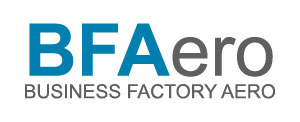Aeronautics is one of the sectors that has suffered most from the impact of the coronavirus pandemic, but several companies in the Vigo area are promoting innovative projects in this field, such as SAQQARAH and CIES Solar, two initiatives that are participating in the third edition of BFAero, the Xunta de Galicia's accelerator for the sector.
The Vigo-based company Merasys is behind SAQQARAH, a project that seeks to inspect industrial processes and environmental spills using drones. "It would allow us reach places that would otherwise be impossible to reach, such as places that are difficul to access; we could go over an entire discharge channel when right now we only control specific points", says Carlos Parrilla, Technology Director at Merasys.
For now, this project is in its initial stages, focused on finding the most suitable drones to mount Merasys' cameras, after which they will carry out navigation tests at the company's workshop, located in Matamá, to test the reliability of the drones and their safety.
SAQQARAH is Merasys' first aeronautical project, a company that is behind the capacity control spheres used in the city and the inspection cameras that check all vehicles leaving the PSA factory in Vigo.
Despite taking the plunge into this sector during one of it's most difficult moments, the company points out that all initiatives related to sensors are proving very successful this year. "Before COVID, this field was undergoing a major boost, and now it has accelerated, it is experiencing a boom", says Parrilla. "Everyone is asking for these types of data-analysis systems, we have a lot of demand and this has accelerated the company's strategy", he indicates.
CIES Solar is another of the province's initiatives in the BFAero accelerator. This project aims to carry out automatic missions of more than 1,000 hectares per day to provide a solution to large-scale mapping work over large areas that could be very useful in sectors such as the management of works or large forest areas.
The CIES Solar prototype consists of a small aircraft carrying a photogrammetric camera that allows the work that could take a week manually, to be completed in just one day. "The great novelty of our equipment is that it has solar panels on the wings; in Galicia we can fly for up to 10 and a half hours without much solar radiation, figures that are unattainable with other technology," says Jesus Cordero, the project's technology director.
Another of the singularities of this equipment is that the take-off is carried out with a small catapult, so it does not need a runway and can operate in a reduced space. The flight is pre-programmed and the pilot does not intervene during the flight, and the aircraft lands using a parachute. The CIES Solar project is already at an advanced stage of development and the team is now focusing its efforts on commercialisation.
In spite of the difficult times that aeronautics is going through, Cordero believes that initiatives of this type will continue to grow. "We are convinced that unmanned equipment is the future, and we will soon see it carrying packages from one place to another, and in a little while, transporting people between distant points," he says.
SAQQARAH and CIES Solar are among the seven initiatives selected by the BFAero, which this year opened up to the outside world with two projects from Madrid, one from Alicante and another from Zaragoza.
You can read the article at the following link:
https://www.atlantico.net/articulo/vigo/aeronautica-tripulada-coge-impulso-vigo/20210102232547813786.html
BFAero is led by Xunta de Galicia through GAIN, IGAPE and XESGALICIA. In addition, it is driven by companies such as Indra Sistemas S.A. and Babcock MCS Spain, and enriched by CTAG and Fundación CEL.








